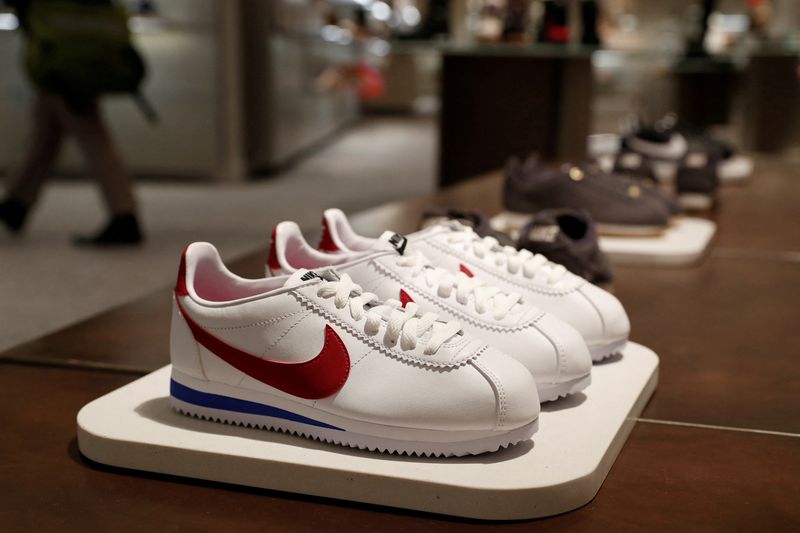By Katherine Masters and Ananya Mariam Rajesh
NEW YORK (Reuters) - Some analysts and investors question Nike (NYSE:NKE)'s move to sell its sneakers and clothing through other retailers including Macy's (NYSE:M) as Americans grow more cautious in their spending.
Roughly two years ago, Nike said it would pull the plug on certain wholesale relationships. It aimed for 60% of its revenue to come from direct sales to shoppers by 2025.
But earlier this month, executives at Macy's and Designer Brands (NYSE:DBI), the parent company of DSW, said they would return to selling Nike shoes or clothing, starting this fall. On Thursday, Nike CEO John Donahoe said its return to wholesale distribution of Nike merchandise is "a continued evolution" of its strategy to reach as many shoppers as possible, including through department stores and other chains.
Nike's return to other retail outlets could reflect a needed change in its strategy driven by shoppers' return to brick-and-mortar stores, said Brian Yacktman, president of YCG Investments. But Yacktman added the decision raised concerns that Nike was moving back to these retailers in a bid to clear inventory and meet short-term profit objectives.
Carolane De Palmas, an analyst at ActivTrades, said Nike's move does help it adapt to evolving consumer preferences. But it also "may seem desperate or indicate a flaw in their direct-to-consumer strategy," she added.
Broadly, retailers are cutting back on orders and in some cases lowering their forecasts to reflect shoppers' caution. Macy's and Designer Brands cut forecasts earlier this month, citing a drop in demand and the need to discount in order to get people to stores.
A recovery in China helped Nike beat fourth-quarter revenue estimates, though earnings missed forecasts. Thomas Hayes, chairman of hedge fund Great Hill Capital said, "With China sales blowing past expectations ... this beat is auspicious for future quarters' results."

Nike shares were down 2.5% Friday.
Last month, Adidas (OTC:ADDYY) said the Chinese market was improving, although its chief executive warned the group still faces a bumpy year.